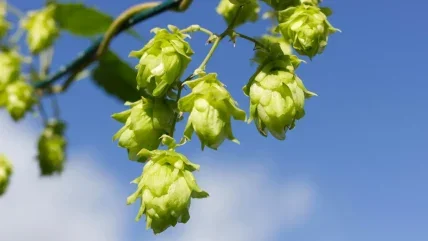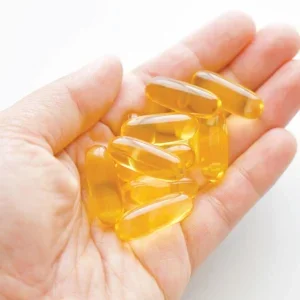
Hops are known around the world for being brewed and producing beers, enabling billions of us to enjoy a tipple. What’s less known is their antibacterial and antioxidant properties. This might explain why they are being increasingly used by chefs and home cooks – or perhaps, it’s because they taste great. Actually, ‘great’ is probably not the way most people would describe their taste; ‘bitter’ is likely to be a much more accurate description, but their popularity is surging around the world.
Husband and wife Marie and Michael Porter authored Hedonistic Hops, a book celebrating hops and how they can be used in cooking. They can make your dishes “sing”, the couple exclaimed. Their book, one of many Marie has penned, revealed the ways in which hops can be used in any kitchen, by anyone. The ingredients industry, however, is a different matter altogether.
Hops are mostly cultivated across North America and Europe, where the climate is more favourable; although they are also found in Western Asia. They have an extensive and varied history dating back to at least 700AD. Growing incredibly fast and often to a great height, they are a member of the Cannabaceae family known as Humulus lupulus. Full of acids and essential oils, different hops will provide unique flavours and aromas to dishes, so selecting the correct one is essential.
Hop aboard
However, it’s not just cooking where hops can be of use – it’s in processing too. Although they are the cause of their bitter flavour, the alpha and beta acids found in hops have antimicrobial properties, making them attractive to manufacturers looking to preserve their products, either as an added preservative or for use in packaging. Scientific studies have been conducted into this prospect, but researchers have suggested that more work needs to be done.
As well as adding flavour, hops can also be great ingredient stabilisers – and the benefits don’t stop there. The food and beverage industry is increasing its use of hop extracts year on year, and the market will be valued at an estimated $1.4 billion by the end of 2018 and closer to $1.8 billion in 2026, according to US-based Persistence Market Research. Part of this could be because brandowners are tapping into the consumer trend for natural products, with a growing body of evidence around hops and their health benefits serving as good news.
Boasting antioxidant properties, hops are believed to prevent oxidative stress-related illnesses, such as cancer and heart diseases, according to scientific studies. As a herbal medicine, hops have been used to treat numerous conditions, including arthritis, diabetes and fibromyalgia. This means they are increasingly being seen as a functional ingredient.
There is also clinical research that seems to confirm the health benefits of hops for treating the symptoms of menopause and insomnia. A 2006 study published in Maturitas suggested that the daily use of hops helped fend off symptoms, such as hot flashes for women going through menopause. A 2010 study into the use of hops to treat insomnia concluded that mixing them with valerian could help relieve symptoms. The study, published in Australian Family Physician, said using both ingredients could help improve sleep quality and also help to induce it; however, it was stressed that valerian on its own could achieve the same result.
Focused on the benefits
The findings of a study into the use of hops for patients with metabolic syndrome – based on rodent subjects – published at the beginning of 2018, showed cognitive functions could be improved. The research conducted by Oregon State University is very promising for those living with the syndrome.
“These findings could be important for people suffering from cognitive impairments associated with a highfat diet and metabolic syndrome,” said Jacob Raber, professor of behavioural neuroscience, neurology and radiation medicine at the Oregon Health & Science University School of Medicine and affiliate scientist at the Oregon National Primate Research Center. “Our findings with rodents suggests that it may be possible to reduce or even prevent learning and memory impairments through a derivative of the same chemical compound found in beer.”
It’s clear there are some benefits to the making hops part of a balanced diet. It’s also evident that consumers are looking to tap into anything that could benefit their health, when supported by evidence. These factors could prove to be hugely persuasive to brand-owners as the market for supposedly healthenhancing foods continues to grow.





